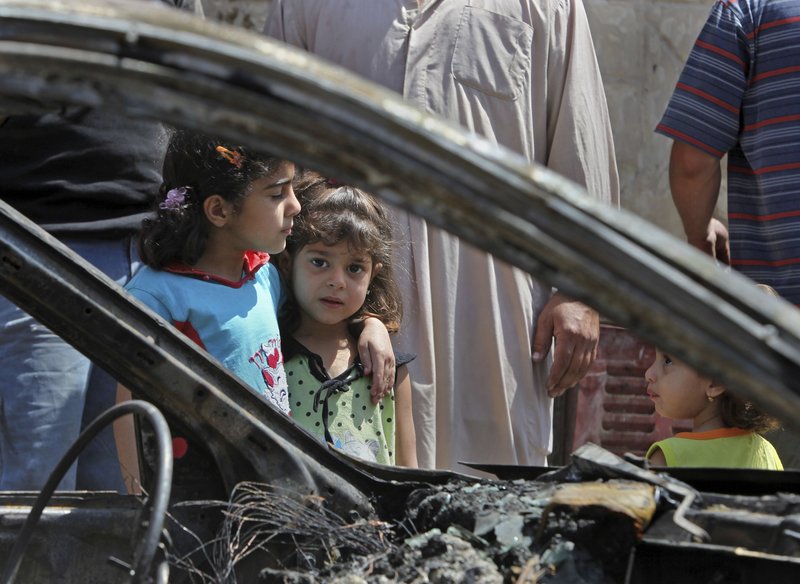BAGHDAD — Iraqi police say six people were killed when three bombs hidden in plastic bags exploded in western Baghdad.
The officials say another 19 people were wounded in the blasts.
The bombings struck late Saturday in an area where young people were playing billiards in a mixed, Sunni-Shiite neighborhood.
The blasts came one day after a series of bombings focused on mosques in Shiite neighborhoods in Baghdad killed more than 70 people.
Those attacks prompted an influential anti-American Shiite cleric to call on his followers to defend themselves and places of worship. However, he urged self-restraint to avoid giving the U.S. military an excuse for postponing withdrawal plans.
Muqtada al-Sadr’s statement signaled growing impatience among Shiites over continued bombings by insurgents and the government’s failure to protect them.
Friday’s bombings — most targeting Shiite places of worship as crowds were at prayer – killed 72 people in Iraq’s bloodiest day so far this year in an apparent backlash by the Sunni-led insurgency after the slaying of the top two al-Qaida leaders last weekend.
Nobody claimed responsibility for the attacks, but Iraqi officials were quick to blame al-Qaida in Iraq, which frequently targets Shiite mosques and processions in a bid to stoke new sectarian bloodshed.
Prime Minister Nouri al-Maliki said the insurgents were fighting back after the deaths of their two leaders.
Al-Sadr, whose forces have frequently clashed with the Americans, issued a statement late Friday calling on “believers” to join the Iraqi army and police “to defend their shrines, mosques, prayers, markets, houses and their towns.”
He stopped short of mentioning the Mahdi Army, his once-powerful militia, which used to respond to such attacks with raids on Sunni areas. Several advisers said al-Sadr was offering his assistance to the government in a rare show of magnanimity to al-Maliki.
The two men were once allies but became rivals after al-Maliki backed U.S.-Iraqi offensives in 2008 that crushed al-Sadr’s fighters and forced him to declare a series of cease-fires.
The cleric, who is widely believed to be based in Iran, has re-emerged as a prominent politician and a potential kingmaker after his followers fared well in the inconclusive March 7 parliamentary vote. That left al-Maliki and his secular rival Ayad Allawi jockeying for allies to give them majority support to govern.
Send questions/comments to the editors.



Success. Please wait for the page to reload. If the page does not reload within 5 seconds, please refresh the page.
Enter your email and password to access comments.
Hi, to comment on stories you must . This profile is in addition to your subscription and website login.
Already have a commenting profile? .
Invalid username/password.
Please check your email to confirm and complete your registration.
Only subscribers are eligible to post comments. Please subscribe or login first for digital access. Here’s why.
Use the form below to reset your password. When you've submitted your account email, we will send an email with a reset code.